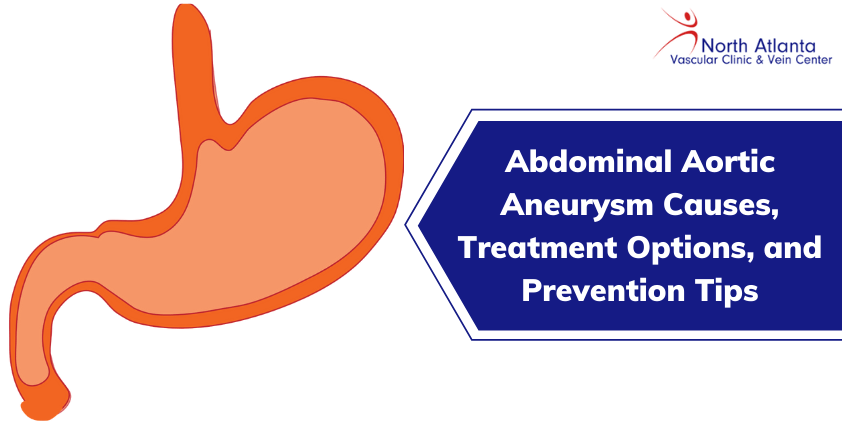



An abdominal aortic aneurysm (AAA) occurs when the aorta (the largest blood vessel carrying blood from the heart to the head, arms, legs, abdomen, and pelvis) becomes weak and swells or bulges out like a tiny balloon. A ruptured aneurysm can be life-threatening, so your doctor will monitor you closely if you are diagnosed with an AAA.
AAA is classified into two types depending on its size and how quickly it grows, including:
Though the exact cause is unclear, some factors can increase your risk for developing an abdominal aortic aneurysm, including:
Other than the above factors, the following are the risk factors that can increase your vulnerability to AAA:
An abdominal aortic aneurysm does not cause any symptoms unless it ruptures. Symptoms of ruptured AAA are:
Your doctor may check the blood flow in your legs or perform these tests to diagnose AAA:
Depending on the size and exact location of your AAA, your doctor will recommend the following treatment options:
It is recommended for those with large AAAs. Your doctor will perform either:
Your doctor may recommend open surgery if your AAA is very large or ruptured. It is an invasive procedure requiring an extended recovery time which is used to remove damaged sections of your aorta. Your doctor will make an incision on your abdomen to remove damaged tissues of the aorta.
It is a less invasive procedure that takes only two weeks to recover. It uses a graft to stabilize the damaged aorta walls.
The success rate of surgery is usually high for aortic aneurysms that are diagnosed before rupturing.
Generally, small AAA grows slowly, so your doctor might recommend monitoring it with regular abdominal ultrasounds to check on its progress.
Follow these tips to prevent AAA:
Contact North Atlanta Vascular Clinic and Vein Center today if you are looking for abdominal aortic aneurysm diagnosis and treatment or have any questions concerning the condition. Our team specializes in managing abdominal aortic aneurysms and provides the care needed to avert any major complications.